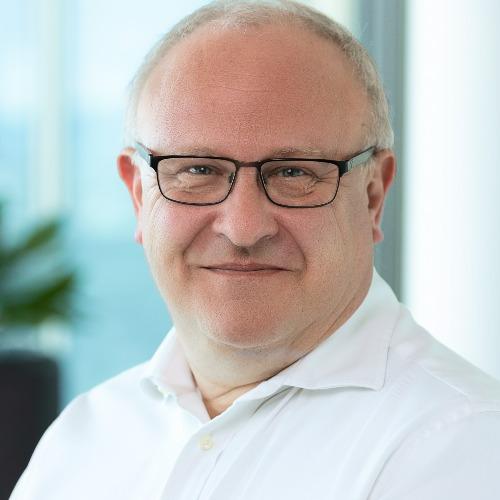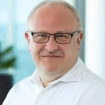
For 2025, we anticipate a continuing and accelerating increase in global M&A activity involving private capital. This growth will be driven by decreasing capital costs, an increasing amount of deployable capital, the revival of initial public offering (IPO) markets and a significant backlog of PE portfolio companies seeking exits. The growing amount of private capital funding available to deploy and the substantial backlog in portfolio exits will create strong supply and demand for dealmaking in 2025.
In Germany, opportunities are becoming more prevalent as large corporations focus on their core businesses and optimise their portfolios, often carving out substantial business units for divestment. With increasing pressure to sell portfolio companies that have been held for longer periods due to unfavourable economic conditions, and with exit multiples remaining below their peak levels, value creation in portfolios will be one of the main trends for the year. Private capital investors will become even more disciplined, focusing on operational transformations to justify hefty entry valuations made in the past and still yield the same high returns.
High valuations and the slowdown in interest rate reductions will prompt PE funds to maintain discipline in their investment decisions – with operational transformation and a focus on value creation being at the forefront.
A second emerging trend is sector convergence in M&A transactions. We are increasingly seeing industry-converging investments by private capital players in companies and projects that cut across industries, such as infrastructure, energy and technology. This is being fuelled by the transformation brought about by AI. Key sectors that investors are focusing on are now converging with the impact of AI, such as energy generation, data centres and other digital infrastructure.
Finally, we expect continued consolidation in the private capital industry as the larger market players look to bulk up across all asset classes, in terms of both equity and debt. Mega-funds are continuing to grow assets under management (AuM) by acquisitions, and are expanding product offerings for areas such as infrastructure and private credit. Increasingly, as the largest funds get larger, mid-size funds are having a harder time raising new investment without a USP. Managers of small and mid-size funds will need to find a specialist niche to survive.
The M&A market upturn for private capital is gaining further momentum
Following a significant increase in transaction activity in 2020 and 2021 at the height of the pandemic, the volume and value of M&A activity by private investors in Germany plummeted in 2022 and remained flat over the subsequent years as a result of rising interest rates, limited capital availability, and unfavourable geopolitical and macroeconomic conditions. In the last quarter of 2023, private equity deal value began growing again, although progress has not been continuous, with some softness returning later in the third quarter of 2024. The initial uptick puts the industry on a trajectory for stronger upward thrust and renewed momentum in 2025, although some nervousness about interest rate cuts, political developments and economic prospects remains in the market.
Holding periods have continued to rise, with portfolio companies remaining on the market for sale due to unfavourable macroeconomic conditions. This trend has led PE firms to use continuation funds in recent years to return tied-up capital to limited partners (LPs). Continuation funds are now an important part of the secondary market, providing liquidity to existing investors and creating exit paths for assets, although their significance diminished somewhat in 2024.
The number of IPOs are continuing to normalise, highlighting their role as an important exit route for private equity firms. Last year, several PE firms exited their portfolio companies through IPOs, including CVC (Douglas, €890 million), BC Partners (Springer Nature, €600 million), and Triton (Renk, €405 million). This trend is expected to continue in 2025.
Emerging trends in M&A activity
In the new wave of M&A activity, several trends stand out. Firstly, some highly diversified corporations are streamlining their portfolios and divesting non-core business units or subsidiaries that do not align with their strategic focus – in part due to pressure from investors – which is leading to an increase in carve-outs. Last year, Aareal Bank, which is owned by Advent International, Centerbridge, CPPIB and other financial investors, sold its real estate software subsidiary Aareon Group to private equity investor TPG for €3.9 billion. Bosch Building Technologies divested its product business for security and communication technology to PE house Triton for €700 million. Several large corporations announced their intention to divest or list large parts of their business portfolios. These include e-on (biogas portfolio), Merck (effect pigments), Siemens (airport logistics, in-vitro diagnostics), BASF (automotive catalysts and recycling), Thyssenkrupp (marine systems, automotive technology), Evonik (ketogenic and pharmaceutical amino acid business) and Biotronik (vascular intervention business). Private equity and infrastructure funds are prime candidates to acquire these types of business units.
Secondly, technology-related transactions continue to attract the attention of private capital. The most notable deals in 2024 were the acquisition of Nexus AG, a German software provider with a total value of €1.2 billion specialising in hospital applications, and the acquisition of a majority stake valued at an estimated €600 to €700 million in SER Group, a global leader in intelligent content automation software – both by TA Associates. Other large tech deals included CVC’s €579 million acquisition of a 49.9% stake in CompuGroup Medical from the Gotthardt founding family and a voluntary public offer to all shareholders; Imker Capital’s €510 million acquisition of German manufacturer of telecommunications and network technology products AVM Computer Systems; Carlyle’s €501 million acquisition of a 76.25% stake in SNP Schneider-Neureither & Partner SE, a software and consulting provider for data migrations and data management; and the €460 million acquisition of a significant minority stake in Regnology, a provider of innovative regulatory, risk and supervisory technology solutions, by the Canadian pension fund CPPIB, in which financial investor Nordic Capital holds a majority stake. Other forms of tech, especially climate-friendly technologies and innovations, are also drawing M&A interest. This trend is expected to continue.
Finally, cross-sector transactions, particularly at the intersection of infrastructure and technology, have gained momentum. One of the most prominent examples from 2024 was the acquisition of telecommunications provider Vantage Towers (Vodafone) by Global Infrastructure Partners and KKR Infrastructure for €1.3 billion. Private investor Viessmann Generations Group acquired ISOPLUS, a provider of energy-efficient, pre-insulated pipes for sustainable heat distribution, from Egeria for €800 million, aiming to expand its market presence in the renewable energy sector. Another example was financial investor Triton’s sale of EQOS Energie Holding for approximately €650 million to French Eiffage SA, a company in the Demeter Partners/BlackRock portfolio. Financial investor EQT also launched its new infrastructure strategy with the acquisition of ju:niz Energy, a leading German project developer and operator of large battery storage systems. With the ever-growing spread of AI, we expect an increase in transactions at the intersection between technology and other industries, such as energy, infrastructure, healthcare and retail – for example, in the fields of data processing, data centres or energy efficiency.
Any questions?
Contact our expert
Proactive management of portfolio companies to create value
Private equity firms are adjusting their internal structures to underscore their renewed emphasis on value creation. The major players have been setting up operating departments dedicated to raising earnings in portfolio companies by taking out costs or accelerating revenue growth. These operational transformations aim to improve efficiency and productivity and free up higher liquidity down the road. This more proactive investment management paradigm is another sign of the pressure from investors for internal rates of return that meet their risk-adjusted return expectations at a time when assets are being held for longer than in the past. It is important to note that some of the asset classes now in favour, such as energy and infrastructure, have inherently long holding periods.
Growing industry consolidation amid the continued rise of private credit
The more difficult funding conditions of the past three years in an environment of rising interest rates have accelerated the consolidation of the private capital industry. One of the factors driving consolidation is the goal of larger funds to encompass a broad range of asset classes, including private credit, which has become an important source for both transaction and corporate refinancing – especially for small and mid-sized companies. Private credit is anticipated to continue growing in importance as an alternative to traditional bank financing.
Amidst this industry consolidation, one of the significant market players – sovereign capital – is changing its behaviour. Sovereign wealth funds no longer mainly act as limited partners in private equity funds, as they used to; instead, they have increasingly evolved to a more direct investing model. Now, some are creating their own investment teams to invest in parallel to the major funds. And they, too, are moving into private debt alongside their more traditional interest in private equity. One notable advantage that sovereign funds hold over traditional private capital firms is their longer investment horizon. Unlike traditional private equity firms, which are often pressured by LPs generate quick returns, sovereign funds can make long-term investments.
Spotlight: wealthy private investors and family offices
M&A transactions involving wealthy German private investors and family offices have become more prominent and varied. Typically, these are long-term investors who leverage the family’s industry expertise and want to take an active role in the companies they invest in. Many wealthy private investors and family offices are increasingly diversifying their investment portfolios by expanding in new geographies and/or industry segments – for example, healthcare, technology, renewable energy and infrastructure. The largest family offices manage portfolios valued at several billion euros and have been actively involved in transaction activities over the past year. Notable examples include the €13.2 billion Axel Springer split-off, with media assets in the classified ad business to be controlled by KKR and digital operations to be owned by the Springer family; the €1.1 billion buyback of shares in Ottobock by Hans Georg Naeder from EQT; and the takeover of pharmaceutical contract manufacturer Aenova by Klaus-Michael Kuehne from BC Partners for an undisclosed ten-figure sum.
Conclusion
The trends explored above are expected to influence dealmaking among private capital players in 2025. We anticipate that M&A activity involving private capital in Germany will expand and gain momentum, although this growth may not be uniform due to factors such as geopolitical issues, domestic political agendas and uncertainties regarding the pace of interest rate reductions. Private capital is likely to continue seeking opportunities to obtain additional value from high-quality assets and to create value in portfolios.













